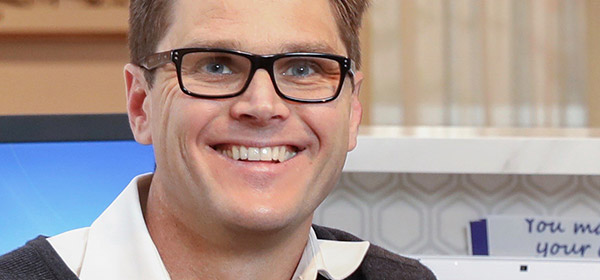Developments in the areas of dementia and Alzheimer’s are regularly in the news, but Mary-Anne asks Dr Troye if researchers are getting close to a cure.
•••
Q. Mary-Anne
I’m 61 and dementia is already frightening me. I’m constantly reading about research that is supposedly zeroing in on supplements and dietary changes that can assist in preventing onset of the disease. Do you think they’ll find a cure in my lifetime?
A. Thank you for your question. There is so much to unpack here.
The first part of your question is about fear. I will need to make many assumptions regarding your concerns so please forgive me if I am off the mark. My assumption here is that your fear of developing dementia is severe enough to keep you awake at night and you are doing anything you can to prevent it.
Anxiety and fear are primeval emotions that evolved to keep us alive. Some of our early ancestors who did not fear death were more likely to take risks, die early and not pass on their genetic predisposition. That has left the rest of us with a propensity for fear and self-preservation. It only becomes a problem when our fear becomes overwhelming and constant. Using fear to make choices that keep us healthy and alive is positive, but when the fear pushes you, it can cause problems. Managing fear is a complex task, but cognitive behavioural therapy can help. Understanding the nature of fear is the first step, and there are many articles online that can help unpack it. There is much insight in the Serenity prayer:
God, grant me the serenity to accept the things I cannot change,
Courage to change the things I can,
And wisdom to know the difference.
The second part of your question is about supplementation and dietary changes that can assist in preventing dementia. My views on supplements may be seen as typical because I am a doctor. However, I do not throw the baby out with the bathwater. I am very open to the idea of supplements, but consider them to be medicine.
Anything that claims to prevent disease, heal an illness or improve people is a medicine and I judge them all as the same. If I am presented with a medication from a pharmaceutical company, a herbal remedy from a herbal remedy company or a supplement from a food company, I look closely at the data and seek clinically meaningful, relevant outcomes. I assure you that there are many pharmaceuticals that fall short of these criteria, but unfortunately, so do most supplements. That is why they use the words ‘assist in’ when they advertise.
If there was a medication/supplement that claimed to prevent dementia, I would be looking at how they made that claim. I would want to see a study that showed a meaningful decrease in the incidence of dementia in people who took it.
Unfortunately, these studies are expensive and difficult, and we will most likely not see any of them. There are no supplements or specific dietary changes that are known to prevent dementia.
So where does that leave us? I would say it leaves us returning to first principles. Eat a good diet, preferably a Mediterranean diet with no sugar or processed foods. Exercise regularly. Meditate and manage your stressors. These three tactics are surprisingly good for you and seem to come up regularly in prevention strategy publications. These tactics also have the benefit of uplifting your mood and boosting your general wellbeing.
The last sentence of your question is my favourite because I love thinking about the future and where technology is going to take us.
You are 61 and so have 39 years left to live. My wry humour loves to think we will all live to 100. My 92-year-old patients love it when I tell them they have eight years left. They do not believe me, but they always smile.
So my answer to whether there will be a cure for dementia in the next 40 years is a resounding yes. I am not basing this on current research, or because I am aware of breakthroughs, but rather because medical knowledge has grown exponentially and there are wonders on the horizon.
I accept that this answer is not going to be reassuring, but 20 years is a long time and when I think back to 1998, I am amazed at what we can do now that we thought would be impossible back then.
Finally, I hope that helped, Mary-Anne. Learn from the past, live in the now and let the future worry about itself.
Dr Troye Wallett is happy to answer your questions. Simply send an email to: newsletters@yourlifechoices.com.au
Dr Troye Wallett is a GP. He is a co-founder and part-owner of GenWise, an ethics-based, purpose-driven mobile general practice which supports health professionals working in aged care.
Related articles:
Could forgetfulness be dementia
Can I rely on at-home screening kit?
Dementia prevention starts when?
Disclaimer: This article contains general information about health issues and is not advice. For health advice, consult your medical practitioner.

